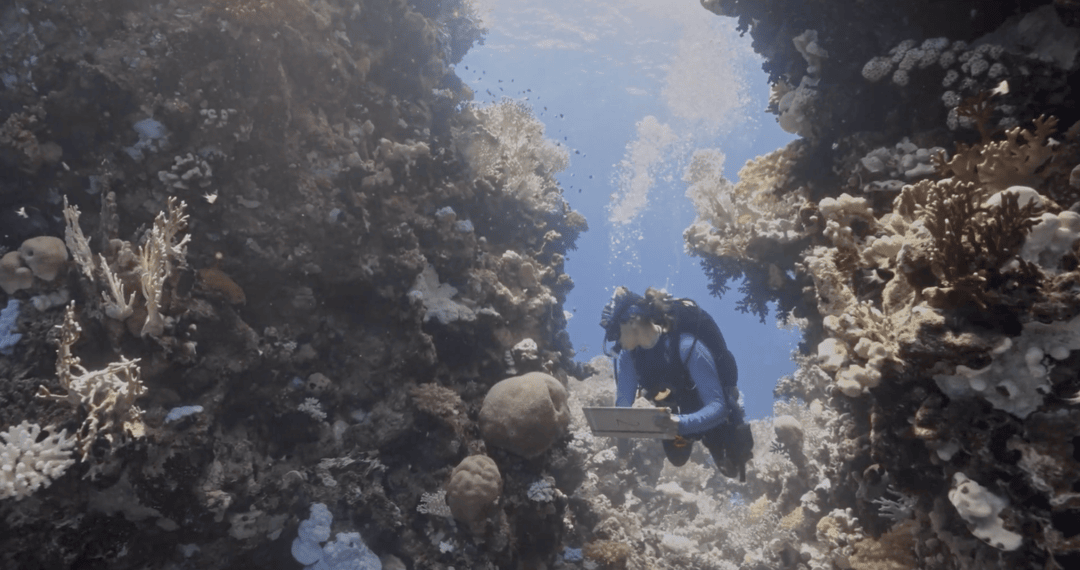2025 to be a critical year for KAUST Coral Restoration Initiative

The KAUST Coral Restoration Initiative (KCRI) is set for a transformative 2025, marking strategic milestones that showcase its growth and innovation. Professor David Suggett, KCRI chief scientist and newly appointed Director, highlights digital twins and land-based nurseries as key developments shaping the program’s next phase.
“It’s the biggest coral restoration ever executed on Earth,” he said, adding that KCRI appealed to him because of its immense scale and cutting-edge use of technology, scientific research and strategic partnerships — such as with NEOM — to ensure a sustainable marine environment. “We have a great team that I have been fortunate to see grow from the earliest phases of the project.”
For example, KCRI is an ambitious restoration effort covering 100 hectares of coral reef adjacent to Shushah Island. Systematically divided into operational grids to facilitate efficient planning and execution at this unprecedented scale, restoration activity includes coral propagation, and habitat enhancement and augmentation using artificial structures. Proponents expect KCRI to deliver a more thriving and resilient reef ecosystem by 2040.
In the short term, Suggett has outlined a two-phase approach. “This year, we are optimizing how we effectively propagate — i.e. grow and re-plant — coral and strategically plan for restoration at scale. Next year and beyond, it is about deploying that in a context that returns our healthy reefs.”
The world-first innovation that will accelerate restoration
Suggett, who joined KAUST in January 2023, is a marine biologist who previously established and led the University of Technology Sydney’s “Future Reefs” program, which focuses on coral reef adaptation in the Great Barrier Reef. His work led to co-founding the “Coral Nature Program,” a unique partnership between scientists and the Australian reef tourism industry, and a world first for delivering scalable reef restoration through networked activity.
For KAUST, one major milestone Suggett anticipates in 2025 is the KCRI eCoral™ digital twin — a digital ecosystem developed by KCRI that combines artificial intelligence and machine learning-driven analytics to streamline coral restoration, scenario modeling and decision-making.
Providing real-time insights via data and analytics for strategic planning is a critical step for strategic planning needed to enhance restoration efficiency.
“This has never been done before — taking a full highly resolved 3D model of our reef and plugging [in] all the models to make it a fully functioning reef system,” he said, adding that such large-scale AI-powered reef health assessments will aid in reef resilience forecasting and policymaking.
Innovation at speed: nursery production to planting thousands of corals
Located at Shushah Island, KCRI’s reef-based nurseries grow coral species under natural reef environments before they are transplanted to reef restoration sites. With a capacity to produce up to 100,000 corals per year, Suggett noted, this method accelerates restoration efforts.
“The technology we are developing here includes autonomous underwater vehicles (AUVs) for monitoring, photogrammetry for high resolution reef digital reconstruction, and novel underwater nursery structures as part of an innovative end-to-end propagation system”
At nearby Haddah Beach, KCRI already operates what rivals the world’s largest coral farm – yet this is only a small-scale pilot facility. Operational since March 2024, this 1,000-square-meter facility serves as a testing ground for advanced coral propagation methods, including both sexual and asexual reproduction techniques. By pioneering coral micro-fragmentation and fusion techniques, the coral husbandry teams speed up coral growth to enhance coral survival and biodiversity.
Meanwhile, with construction completion expected before year-end 2025, KCRI’s main facility will be the world’s largest and most advanced land-based coral nursery. Spanning the size of five soccer fields and housing more than 400 tanks, it is designed to produce up to 400,000 corals annually. Among other innovations, the facility will integrate smart coral production management, husbandry semi-automation and climate adaptation processes to ensure optimal coral health.
Developing the next generation of coral warriors
Launched in 2023, KCRI’s Talent Development Program provides one year of immersive training for Saudi graduates, equipping them with expertise in coral conservation, marine biology and ecosystem restoration. Suggett said: “It provides an exciting opportunity to train the next generation of experts for a workforce that is ultimately going to be needed to conserve and restore our reefs.”
Currently, five Saudis are in the program (with another four already graduated), gaining hands-on experience in coral propagation, out-planting and monitoring, as well as mentorship and exposure to global research partnerships in marine conservation. According to Suggett, only a united approach spanning science, practice and governance can build sustainable and resilient restoration outcomes.
With ambitious goals and cutting-edge innovation, KCRI and its new Director are set to make 2025 a milestone year in global coral restoration. These efforts will lay the foundation for Saudi marine conservation lasting many years.
KCRI at a Glance
More than 2 million corals planned for out-planting by 2030
100 hectares of restored reefscape
400,000 corals propagated annually at land-based nurseries
100,000 corals propagated annually in ocean-based nurseries
More than 200 nursery structures deployed
More than 35 active research and development projects driving innovation

